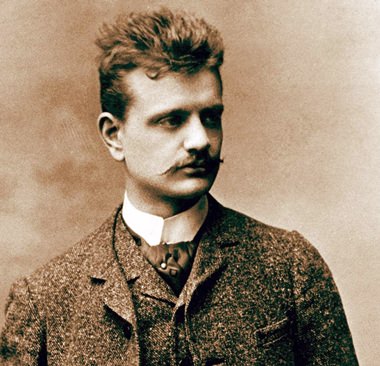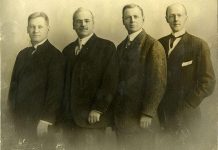You might have come across a website called Quora, on which people can pose questions to others about virtually anything that springs to mind. Some of the queries are quite interesting and often answered by specialist experts but other questions strike me as verging on silliness. Last week for example, someone had invited people to relate one of their memories of childhood that they are too embarrassed to mention. This provoked a flood of responses and even to my liberal mind some of the childhood memories were somewhat alarming and hardly appropriate to repeat in a family newspaper. However, I can reveal to you a memory of my own childhood that I rarely mention nowadays, if you absolutely promise to keep it to yourself. When I was about eleven years old, I scraped all my pocket money together and bought a record of Doris Day singing The Deadwood Stage. There. I knew you would be shocked. My parents were doing their best to get me interested in classical music and they must have been taken aback to hear the lusty voice of Doris Day unexpectedly belting out of the music room.

And do you know? The reason that I found the song so pleasing is in my childlike mind, it created a vivid picture of the Old West: the sun high in the sky and a horse-drawn stage coach clattering along a dusty track in a wild and rocky landscape. In retrospect, the slightly unrealistic imagery must have come from Hollywood but even so, the jaunty song created in my mind a magical sense of place. In later years I discovered similar qualities in Aaron Copland’s music in which he often creates images of the spacious, lonely atmosphere of the open prairie. In some of the moody orchestral music of Villa-Lobos you can almost smell the dense, humid Brazilian forests.
This sense of place is something appreciated by people who understand wine. You can often find it for example, in some of the brittle Sauvignon Blancs of New Zealand, the richly flavoured reds of the Southern Rhône or even the fresh light reds from Provence in the South of France. Sibelius too had the uncanny ability to create musical images of his homeland: images which suggest the dark frozen forests of northern Finland. The music of Vaughan Williams invariably evokes images of England’s rural landscapes, prompting Peter Warlock’s slightly dismissive remark that “it’s all just a little too much like a cow looking over a gate”.
Jean Sibelius (1865-1957): The Swan of Tuonela. Norwegian Radio Orchestra cond. Avi Ostrowsky (Duration: 09:14; Video 480p)
This is one of the composer’s more introvert pieces; music which transports you into a secret and mysterious world of brooding shadowy landscapes with dark green forests and ice-cold lakes. The piece is virtually a solo for cor anglais (a kind of tenor oboe) and this exceptional performance is conducted by the Israeli conductor Avi Ostrowsky and features the evocative playing of Ingrid Uddu.
Composed in 1895 when Sibelius was thirty, this short tone poem is one of the movements of his Lemminkäinen Suite, based on a story from the nineteenth century Kalevala, one of the most significant works of Finnish literature. The piece is scored for a comparatively small orchestra and the music paints a haunting, unworldly image of a mystical swan floating on the gloomy river around Tuonela, the legendary Finnish underworld and the island of the dead.
Frederick Delius (1862-1934): On Hearing the First Cuckoo in Spring. Orquestra Clássica do Centro (Portugal) cond. David Wyn Lloyd (Duration 08:55; Video 1080p HD)
If the Australian composer Percy Grainger hadn’t introduced Delius to a Norwegian folk song called In Ola Valley, this cuckoo-inspired tone poem may never have been written. Composed in 1912 and based on the same folksong, it’s the first of Two Pieces for Small Orchestra – the second being the equally evocative Summer Night on the River.
Delius was born and brought up in Bradford but his parents were of Dutch origin, which explains his rather un-English name. When this piece was written, Delius was an established composer and although he lived in France for much of his life the music suggests nowhere else but England. You would perhaps expect the piece to be bright, sunny and optimistic but instead it’s reflective and laden with nostalgia. Even the cuckoo imitation, played sadly on the clarinet is steeped in melancholia.
This exquisite work is a wonderful example of Delius’s personal and unmistakable musical landscape. Some years ago, a new recording of On Hearing the First Cuckoo came out. It was an unpleasantly beefy performance with little sense of delicacy. The reviewer for The Gramophone magazine breezily remarked that the piece sounded more like On Cooking the First Hero.
 |
 |
 |





